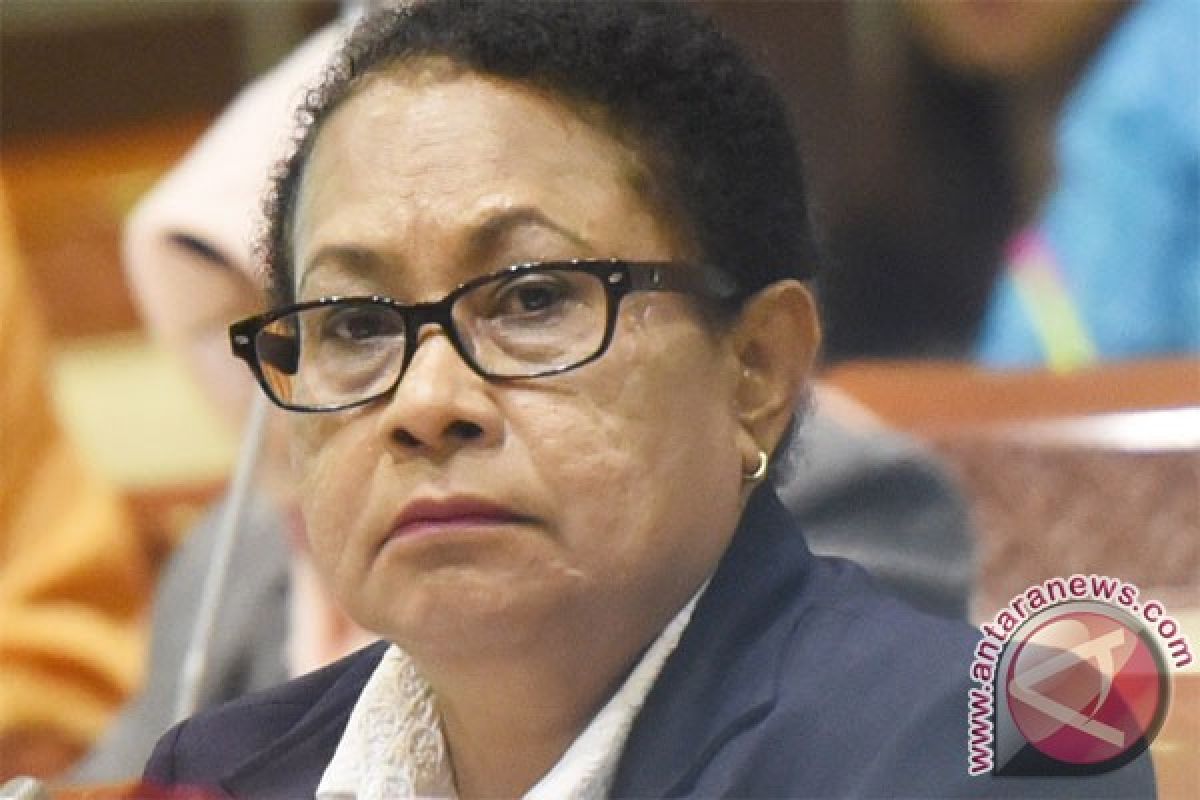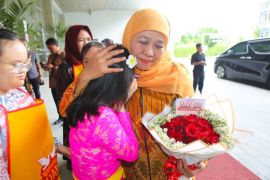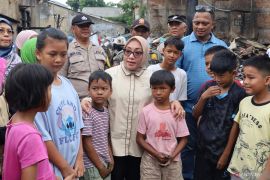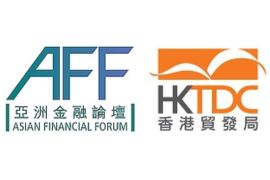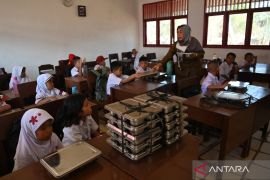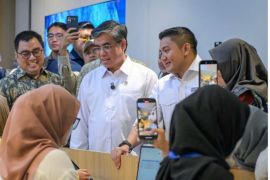Gender development still faces many challenges as well as opportunities."Jakarta (ANTARA News) - Women Empowerment and Child Protection Minister Yohana Yembise has emphasized the need for every ministry, institution, and local government to be committed to gender mainstreaming.
As one of the developing strategies of the national policy, gender mainstreaming is important to improve the quality of life of men, women, boys, girls, elderly, and people with disabilities. Such effort can be measured through the index of human development, gender development, and gender empowerment.
"Special attention for women is also needed because women, whom are equal to men, are the subjects or developmental actors who play a significant role in various jobs and professions," Yembise noted, in a dialog about commitment to gender mainstreaming here, on Tuesday.
Central Statistics Agency (BPS) recorded that women contribute to 46 percent of the development of the country.
In this case, President Joko Widodo (Jokowi) has issued a presidential instruction in 2000 to regulate the implementation of gender mainstreaming in all ministries, institutions, and local governments as a strategy for creating policies, programs, and activities started from the planning, budgeting, implementation, until evaluation.
After 15 years of the movement, the Indonesias human development index (HPI) still remains intermediate with the score slightly below the world average.
Meanwhile, Indonesias gender development index (GDI) ranked 110 among 188 countries, with score slightly above the world average, although its HPI and GDI remain intermediate in the ASEAN.
"Gender development still faces many challenges as well as opportunities. Women labor force participation rate, which is still below 50 percent, indicates the sizeable human resources potential that are not yet empowered," Yembise remarked.
Several issues that need to be addressed regarding the effort of gender mainstreaming include the less participation of women in schools than men, the high rate of maternal mortality, environmental damages that affect the lives of women and children, high incidence of human trafficking, as well as high economic inequality.
In terms of institutional aspects, there are still more things that need to be improved.
Until 2016, among 33 ministries which have reported their implementation of gender mainstreaming, only 60 percent of them which had done it right.
They have been demonstrating commitment towards various policies and gender mainstreaming institutionalization from the level of average to excellent, as well as having strong network with other stakeholders, and developing their human resources to be able to implement gender mainstreaming.
The remaining 40 percent of ministries are considered weak in providing separated data based on gender, as well as facilities and tools as the guidelines to implement gender mainstreaming in their institutions.
Particularly, Yembise has encouraged ministries and institutions to increase women participation in the policy making process, in order to improve their capacity and access in the national development.
Women and men must get equal benefits from the development process that fit their needs and aspirations.
"I wish this effort can strengthen our will to significantly contribute to the realization of gender equality," she noted.
(Reported by Aubrey K Fanani/Uu.Y013/INE/KR-BSR/F001)
Editor: Priyambodo RH
Copyright © ANTARA 2017
